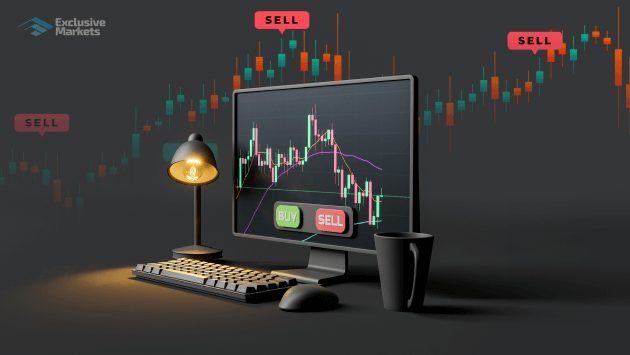
Currency trading, specifically in the Forex market, has gained immense popularity over the years. As the largest and most liquid financial market in the world, Forex trading offers numerous opportunities for investors and traders alike. With the potential for high returns comes the need for a robust understanding of market dynamics. If you’re looking to enter the world of Forex and want to know where to start, currency trading forex Forex Brokers in Kuwait can provide valuable resources and platforms to kickstart your trading journey.
Understanding Forex Trading
Forex, or foreign exchange, is the process of exchanging one currency for another. It operates through a network of banks, brokers, and financial institutions, rather than a centralized exchange. This decentralized structure allows the Forex market to operate 24 hours a day, five days a week, making it accessible to traders from around the globe.
Market Participants
The Forex market is composed of various participants, including:
- Central Banks: These institutions control a country’s monetary policy and influence exchange rates by adjusting interest rates and intervening in the currency markets.
- Commercial Banks: Major banks facilitate currency trading for clients and themselves, playing a crucial role in market liquidity.
- Brokers: Brokers provide platforms for retail traders to access the Forex market, often offering leverage to increase potential returns.
- Hedge Funds: These investment funds often trade large volumes of currency to hedge against risks or capitalize on market movements.
- Retail Traders: Individual traders who participate in the Forex market, often using online trading platforms to execute trades.
Currency Pairs

In Forex trading, currencies are traded in pairs. A currency pair consists of a base currency and a quote currency. For example, in the currency pair EUR/USD, the Euro (EUR) is the base currency, and the US Dollar (USD) is the quote currency. Currency pairs are divided into three categories:
- Major Pairs: These pairs involve the most traded currencies, such as EUR/USD, USD/JPY, and GBP/USD.
- Minor Pairs: These pairs do not include the US Dollar, like EUR/GBP and AUD/NZD.
- Exotic Pairs: These pairs involve a major currency and a currency from a developing economy, such as USD/TRY (Turkish Lira) or USD/SEK (Swedish Krona).
Key Concepts in Forex Trading
To become a successful Forex trader, it is essential to understand key concepts such as pips, spreads, margin, and leverage:
- Pips: A pip is the smallest price move that a given exchange rate can make. For most currency pairs, one pip is equivalent to 0.0001.
- Spreads: The spread is the difference between the bid price and the ask price of a currency pair. A narrower spread indicates lower trading costs.
- Margin: Margin is the amount of capital required to open a trading position. Forex brokers typically offer leverage, allowing traders to control a larger position with a smaller amount of capital.
- Leverage: Leverage enables traders to amplify their trading performance by borrowing funds. While it increases potential profits, it also magnifies risks.
Trading Strategies
There are numerous trading strategies that traders can adopt, including:
- Scalping: A short-term trading strategy that involves making numerous trades throughout the day to profit from small price movements.
- Day Trading: Involves opening and closing trades within the same day, avoiding overnight exposure to market risk.
- Swing Trading: A medium-term strategy that involves holding trades for several days or weeks, aiming to profit from price swings.
- Position Trading: A long-term strategy that involves holding trades for an extended period, allowing trends to develop fully.
Technical and Fundamental Analysis
Traders utilize two main forms of analysis to inform their trading decisions:
- Technical Analysis: This approach involves analyzing historical price data, charts, and indicators to predict future price movements. Common tools include Moving Averages, RSI, and Fibonacci retracement levels.
- Fundamental Analysis: This method examines economic indicators, interest rates, and geopolitical events that may impact currency values. Traders often look at factors such as GDP growth, unemployment rates, and inflation.
Choosing a Forex Broker
When selecting a Forex broker, several factors are crucial to consider:
- Regulation: Ensure that the broker is regulated by a reputable financial authority, providing added transparency and protection for your funds.
- Trading Platform: Evaluate the trading platform for user-friendliness, available tools, and features that suit your trading style.
- Spread and Fees: Compare spreads and commission structures to minimize trading costs.
- Customer Support: Quality customer support can be critical for resolving issues quickly and effectively.
Risk Management in Forex Trading
Effective risk management is paramount in Forex trading. Here are some strategies to consider:
- Using Stop-Loss Orders: Always set stop-loss orders to minimize potential losses on trades.
- Position Sizing: Determine the appropriate amount to invest in each trade based on your overall account size and risk tolerance.
- Diversification: Avoid putting all your capital into one currency pair. Diversifying your trades can help spread risk.
- Continuous Learning: Stay updated with market news, trends, and educational resources to improve your trading skills over time.
Conclusion
Currency trading in the Forex market can be a lucrative endeavor for those who approach it with knowledge and a well-developed strategy. By understanding market dynamics, employing effective trading strategies, and managing risk, traders can maximize their potential for success. As you embark on your Forex trading journey, consider utilizing resources such as Forex Brokers in Kuwait to aid your development and provide necessary tools. Remember that consistency and discipline are key to long-term success in Forex trading.